In July I was invited to a very special event. The Cowgate Under 5’s Centre received an Investing in Children Award earlier this year. In the words of Lynn McNair, Centre Manager, this is how the event happened…
“Today we spoke to the children about the award and how they would like to receive it. Here is what they had to say:
Jason said, “I would like a family party to celebrate.”
William said, “We could have it in the same place as my party, my house…that would be too much people. Could we fit in a big room? We could make our garden a bit partyish… what about the cake?”
Raphael said, “I’m thinking about balloons… make the cake really big!”

Matilda said, “Flags around the garden…we could play a game called ‘mummies’…not like mum, it is wrapping mummies. Egyptian mummies.”

Emily said, “I would like to invite my family. ‘Dear Lake Family…'”
Emily and Jason said, “I could invite you and you could invite me.”

So…we are having a garden party to celebrate. It would be marvellous if you could come. Together the children and centre community will decide how the children will receive the award. As you know, this is the most important award of all as it is about living with our children, listening to them as unique individuals who have the right to be taken seriously.”
The Cowgate Under 5’s Centre is the first Scottish establishment to receive this award. It demonstrates the community’s commitment to ensuring dialogue with children that leads to change and that the children agree this is the case. From the Investing in Children website, the words dialogue and change have significant value:
“Dialogue is an interactive, ongoing process, not a one-off event. A distinction needs to be made between ‘consultation’ where powerful people consult the powerless, and ‘dialogue’ where young people are seen as partners with a valid contribution to make to the design and delivery of services. To achieve Investing in Children status, services will also have to demonstrate that this is an inclusive process and that some young people are not prevented from making a contribution.
Dialogue should not be seen as an end in itself, dialogue must lead to change. Having invited young people to comment on how a service is provided we need to make sure young people are then able to influence its development. Investing in Children services are those that have demonstrated that out of dialogue, improvements have come about.”
I often come across nursery settings that are unsure about how to meaningfully involve children in dialogue and change. In my experience, it’s an ongoing process of experimentation, trial and error. Over weeks, months and years, the processes do bed down and eventually it becomes a normal way of working. Everything that happens in Cowgate involves meaningful, genuine dialogue with children of all ages, from 0 to 5 years! Congratulations Cowgate Under 5’s Centre. A well-deserved accolade!
There are some very good resources out there which can help practitioners develop their dialogue with children in their care. I particularly like Starting with Choice as it is a quick read which demonstrates how very young children and those who lack verbal skills can be consulted and involved in making decisions which affect them.
Listening to Young Children: The Mosaic Approach by Alison Clark is also enormously useful for offering a range of practical strategies. Some children demonstrate their ideas and thoughts in a practical of physical way and work less well with a “let’s sit down and talk” approach. Alison has written several books about consulting children so take your pick!
Never Too Young is also packed with a huge number of ideas. The title says it all! If your school is a member of Learning Through Landscapes or a similar school grounds charity, then these organisations also have advice about consulting children around developing their outdoor space.
Finally, Mindstretchers have demonstrated huge success throughout the UK with the use of their Talking and Thinking Floorbooks and associated training.






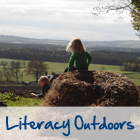
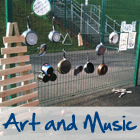
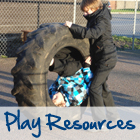


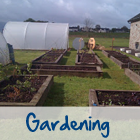


















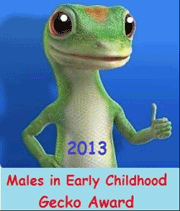


Juliet — So glad I stumbled across your blog. Though my blog’s pretty adult in much of its content, I strongly support the Children & Nature Connection movement and welcome any chance to connect w/fellow Nature lovers!
Thanks Jeff – your blog is super too. Thanks for dropping by